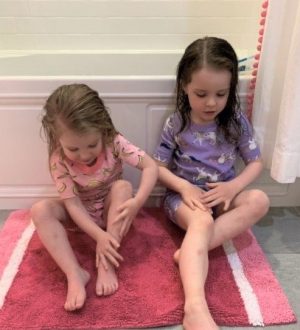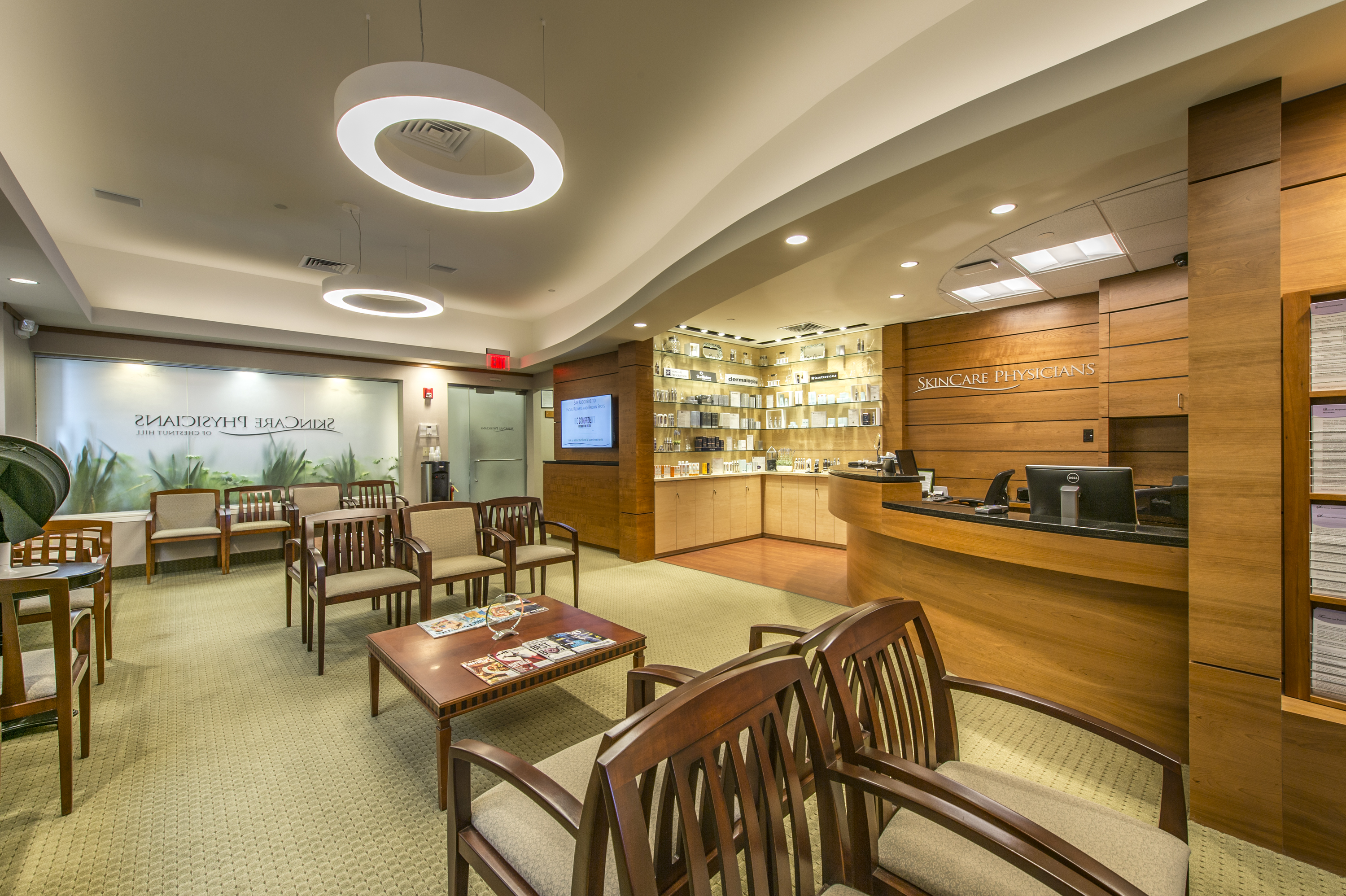- Home
- Blog
- Pediatric Dermatology
- Caring for your children’s skin while spending time at home during COVID-19
Caring for your children’s skin while spending time at home during COVID-19
 During this time of COVID-19 awareness and social distancing, it is not unlikely that parents will observe some very common skin issues with their children. Whether it’s dryness, rashes or worsening of chronic conditions due to stress, this blog post from our dermatologist Laurel Morton, MD is intended to share helpful guidance on how to best care for your children’s skin.
During this time of COVID-19 awareness and social distancing, it is not unlikely that parents will observe some very common skin issues with their children. Whether it’s dryness, rashes or worsening of chronic conditions due to stress, this blog post from our dermatologist Laurel Morton, MD is intended to share helpful guidance on how to best care for your children’s skin.
Dry skin
We are all spending more time at home than we normally do and the static climate in our houses means that some of us are exposed to less humidity than usual. The problem with dry air is that it can exacerbate dry skin, which can be bothersome and itchy, and can incite painful eczema in children who are predisposed for this condition.
If you find that your little ones’ skin is appearing flaky, dry or irritated, it’s a good idea to make sure you are applying moisturizer at least twice daily, especially after bath time in order to trap hydration. Some of Dr. Morton’s favorite recommendations for children’s skin include: Vanicream Moisturizing Cream for Baby, Aveeno Baby Eczema Therapy Moisturizing Cream and my personal favorite, La Roche-Posay Lipikar Balm AP+. In her home, Dr. Morton makes applying moisturizer a part of her children’s daily bath time routine.
Be sure to avoid extra, possibly irritating, fragrances in products such as soaps, shampoos and lotions. Fragrance free Vanicream products are particularly useful if you notice your children have very sensitive skin. And, if you catch your children scratching their itchy dry skin, remind them that scratching will actually make them itchier. Keep their nails short and avoid itchy fabrics such as wool sweaters or blankets.
Finally, adding a humidifier to your children’s bedrooms will also help fight dry air in your home.
Dry, itchy hands
Many parents put extra effort into hand washing for themselves and their children in order to stave off the threat of illness that comes with school aged children, and that’s been taken to another level in the setting of COVID-19. Water, soap and hand sanitizer are all essential to decrease spread of viruses, but they are also irritants to the skin’s surface. With frequent use, they can contribute to dryness, hand eczema and sometimes even fissures or breakdown of the skin barrier.
Fortunately, there are excellent ways to combat hand dermatitis and still continue to keep our hands clean. Dr. Morton keeps moisturizer in a pump container, right by the sink, to help to remind her kids to use it. She also makes sure to apply a thicker moisturizer to their hands right before bed such as Aquaphor Healing Ointment or Vaseline.
Sometimes, medicated creams, including topical corticosteroids, may be necessary to stop the rash and itch of hand dermatitis. For further information and advice please see Dr. Robin Travers’ blog about how to beat hand dermatitis in times of frequent handwashing.
Stress and children’s skin
Patients frequently ask if stress causes certain skin conditions. The answer Dr. Morton gives is that stress does not cause many skin conditions, but it frequently exacerbates them. In other words, skin flare ups may be a signal that your child may be feeling the added stress of the COVID-19 crisis.
One example of this type of condition is adolescent acne. In their virtual dermatology visits over the last few weeks during this crisis, SkinCare Physicians’ dermatologists have seen acne flares potentially attributed to increased stressors. Many over the counter products can be helpful treatments. Dr. Laurel Morton recommends cleansers that contain salicylic acid or benzoyl peroxide such as Neutrogena Oil Free Acne Wash or SkinCare Prescription Benzoyl Peroxide Wash. Topical medications including retinoids such as La Roche-Posay Effaclar Adapalene Gel .1% Acne Treatment are also very useful. Parents should keep in mind that sometimes, these over the counter products can cause skin irritation and/or sun sensitivity and it may be up to two months before benefit is seen.
A great resource for parents as they help their children cope with increased stressors during COVID-19 is the American Academy of Child and Adolescent Psychiatry’s website. It provides useful handouts about speaking with children about the COVID-19 pandemic.
If you’ve already tried to address your child’s skin concern with these conservative measures and you’re looking for additional recommendations and guidance, don’t hesitate to contact us at SkinCare Physicians. During this crisis, we continue to see established and new patients via virtual visits.
Helping our children to be comfortable in their skin is one thing we can all do to show them we’re watching out for them during this time.



This was a great article, I did notice that I had to change my children’s moisturizing routine due to their skin being drier than usual. So I changed their bath soap and lotion to non fragrance and noticed a big difference with their skin. I was able to retain moisture with their skin.